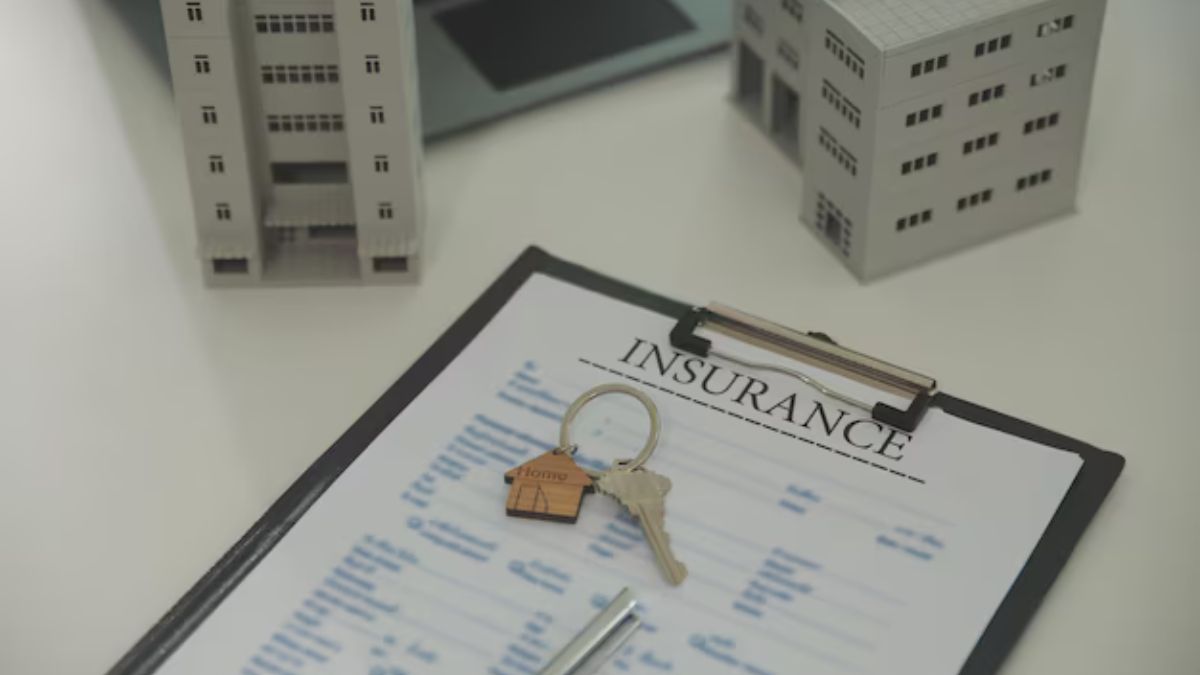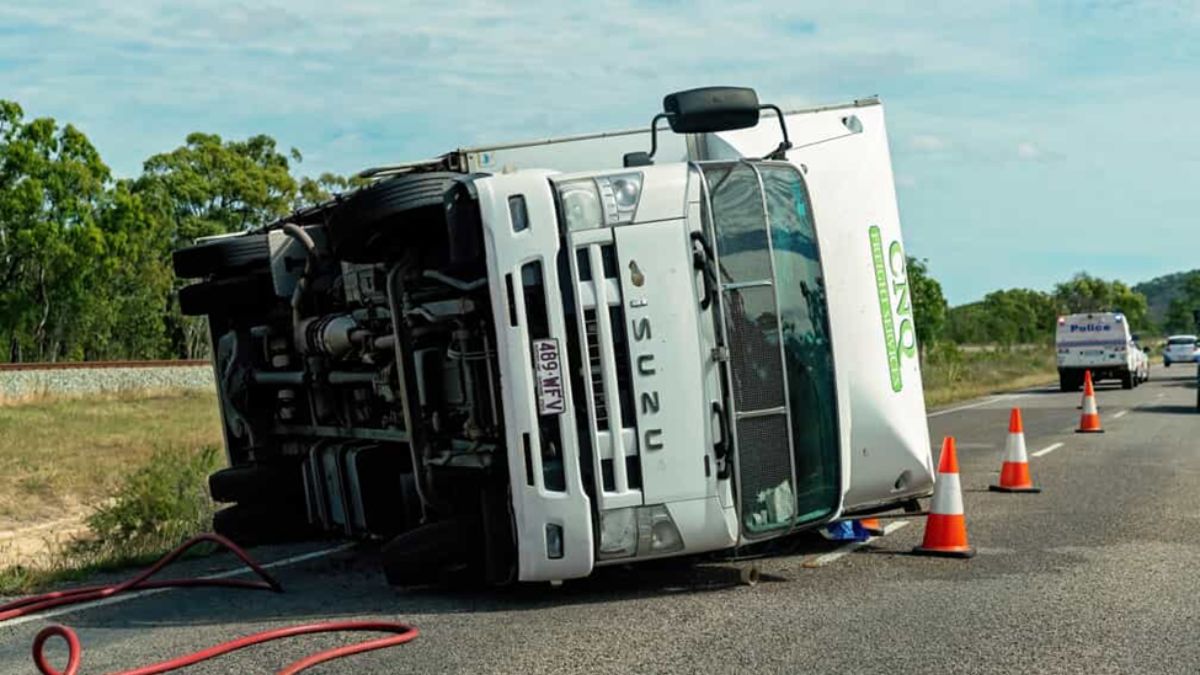INSURANCE
The Art of Balancing Home and Auto Insurance for Peace of Mind

Why Insurance Matters
Insurance is a financial safety cushion that protects you from life’s unpredictable turns. Having a home or a vehicle requires you to take on various duties and be prepared for potential dangers. From hurricanes to car crashes, the uncertainty can be unsettling. This is when insurance comes into play, providing protection that softens the impact of unexpected occurrences. It’s more than just a policy; it’s a way to ensure your peace of mind, freeing you from the stress of potential risks so you can concentrate on what’s important. Moreover, integrating policies through a home auto insurance bundle elevates this peace, providing ease of management and potential financial relief.
The Basics of Bundling Home and Auto Insurance
At its core, bundling is purchasing multiple insurance policies from a single provider. This often involves combining home and auto insurance into one convenient package. The philosophy behind bundling is simple: consolidating your insurance needs with one provider can streamline your policy management while unlocking cost-saving opportunities. Think of it as a package deal that simplifies your financial arrangements and enhances your overall coverage. Insurers are keen on offering bundles as they encourage customer loyalty and provide added value through discounted rates and exclusive perks. As a consumer, this could mean fewer billing headaches and more consolidated information, reducing the administrative burdens typically associated with managing separate policies.
Unpacking the Benefits
The immediate benefit of bundling home and auto insurance lies in potential savings. Insurers frequently offer considerable discounts to clients who opt for combined policies, effectively lowering the overall cost of coverage. This financial incentive can be significant, especially over the lifespan of the policies. Beyond monetary gains, convenience emerges as a considerable advantage. Handling all your insurance needs under one roof means you only have a single point of contact. This makes inquiries, claims and policy adjustments far simpler and more efficient. Should a situation arise that impacts both home and vehicle, such as a severe weather event, having a bundled policy can streamline the claims process, allowing you to resolve issues more swiftly and with less stress.
Furthermore, bundles often come with enhanced services or coverage options that are less accessible with separate policies. This could include added protections, such as personal liability or valuable item coverage, at a fraction of the standard cost. The collective purchasing power you leverage when bundling can provide access to these extras, increasing the overall value of your investment insurance package.
Common Concerns and Misconceptions
Despite these advantages, concerns about bundling still circulate among consumers. A typical misconception is the belief that bundling somehow dilutes the quality of individual policy coverage or limits service offerings. In truth, bundled policies are tailored to meet the same rigorous standards as separate policies. It’s crucial, however, to thoroughly compare the coverage options provided by different insurers. Ensure that the bundled package matches and potentially exceeds separate plans’ coverage. Debunking myths surrounding bundling can ease these concerns and clarify the benefits available.
Another common concern relates to the fear of being locked into a single insurance provider. Some worry that switching providers or adjusting policies could become a hassle once bundled. Yet, many insurers facilitate seamless transitions or modifications without penalizing the consumer. Understanding the flexibility inherent in bundled policies can alleviate these worries.
How to Choose the Right Policies for You
Picking the correct insurance plans starts with thoroughly evaluating your needs and lifestyle. Consider elements like where you live, the age and state of your house and cars, and any dangers you might encounter. These factors are crucial in deciding the kind and level of insurance you need. Before making a decision, it’s helpful to obtain quotes from various providers to get a complete understanding of the market options.
Customization is often key to optimizing your insurance bundle. Don’t hesitate to engage in detailed discussions with potential insurers about optional extras or flexible terms that could enhance your coverage. Whether it be increased liability protection or additional coverage for specific items, tailoring the options to suit your circumstances can maximize the policy’s effectiveness and relevance.
Tips for Maintaining Your Policies
- Review your policies annually to meet your needs and reflect any life changes.
- Adjust your deductible to balance premium costs and coverage effectiveness based on your financial situation.
- Stay informed about any new discounts or updates your insurer might offer for bundlers.
By regularly examining and updating your insurance plans, you may adjust for changes in circumstances or financial status while maintaining the best possible protection. Informing your provider about significant life events, like buying a new car, renovating your home, or even changes in employment, ensures your coverage remains appropriate and advantageous. Constant vigilance and open communication with your insurer are critical to effective, long-term policy management.
Future Trends in Insurance
The insurance landscape is continuously evolving, mainly driven by advancements in technology. Digital innovations, such as mobile apps and AI tools, are transforming how consumers interact with their insurance policies. These platforms offer convenient access to policy documents, instant claims processing, and personalized policy suggestions based on user data. It will be easier for you to handle changes in the industry if you keep up with current trends. Using technology means you’ll be ready to take advantage of new features and services as they become available.
Telematics, for instance, is revolutionizing auto insurance by utilizing real-time driving data to tailor policy premiums more accurately. This customized approach offers significant benefits for safe drivers and can encourage more mindful behavior on the road. Staying informed of such innovations positions consumers to make informed decisions that could enhance their coverage and reduce costs.
Final Thoughts on Bundling Insurance
Ultimately, bundling home and auto insurance offers a compelling combination of cost savings, convenience and comprehensive coverage. By embracing a strategic approach to bundling, consumers can ensure they are protected practically and economically sensibly. It’s important to remain diligent in continually evaluating your insurance needs, exploring market trends, and maintaining open communication with your provider. These steps fortify your defense against life’s uncertainties and empower you to optimize your coverage for peace of mind.
INSURANCE
What Every Renter Needs to Know About Tenant Insurance Coverage Options

When renting a home or apartment, tenant insurance is an essential safeguard that offers protection for your personal belongings and liability. Whether you’re living in a small studio or a multi-bedroom house, tenant insurance helps you avoid financial loss in the event of accidents, theft, or unexpected events. However, many renters are unaware of the variety of coverage options available to them. Understanding these options can help ensure that your policy meets your needs while offering valuable protection. In this guide, we’ll walk you through the key tenant insurance coverage options and tips for selecting the right plan.

Reviewing Your Insurance Premium
As a renter, it’s important to periodically review your tenant insurance premium. Premiums can vary depending on several factors, including the value of your belongings, the coverage limits, and the location of your rental. Over time, your needs may change as life changes mean reviewing your tenant insurance and adjusting it to reflect these life changes means reviewing your tenant insurance. It’s essential to shop around to ensure that you’re getting the best coverage for the most competitive rate. Keep in mind that factors like your rental history, claim history, and even the security measures in place at your home can affect the cost of your insurance premium.
Personal Property Protection
One of the core aspects of tenant insurance is personal property coverage. This protects your belongings from damage or loss due to events such as fire, theft, vandalism, or certain natural disasters. Common items covered include furniture, electronics, clothing, and appliances. The amount of coverage you choose will depend on the value of your items. You can either select a policy with actual cash value (ACV) or replacement cost coverage. ACV reimburses you for the value of items after depreciation, while replacement cost coverage provides funds to replace damaged items with new ones.
Liability Coverage

Liability coverage is another crucial aspect of tenant insurance. It protects you if someone is injured on your property or if you cause damage to someone else’s property. For example, if a guest slips and falls while visiting your apartment, liability coverage would help cover their medical expenses and protect you from lawsuits. This coverage can also extend to damage you accidentally cause to the building, such as flooding the apartment below with an overflowing bathtub. Liability protection is particularly important if you live in a shared space or high-traffic area.
Additional Living Expenses Coverage
If your rental unit becomes uninhabitable due to a covered event, such as a fire or severe water damage, additional living expenses (ALE) coverage can help. This provision pays for the cost of temporary housing, such as a hotel or rental property, until your home is repaired. ALE coverage also includes reimbursement for additional living costs, such as meals or transportation, if necessary. It’s important to understand the limits of this coverage, as some policies may only pay for a specific period or a set amount.
Tenant insurance is an important protection that every renter should have in place, but understanding the various coverage options is essential. By staying informed about your options and customizing your coverage, you can make sure that you’re fully protected in case of unexpected events.
INSURANCE
The Benefits of Hiring Storm Damage Repair Experts for Insurance Claims

Navigating the aftermath of a storm can be an overwhelming experience, particularly when it comes to managing the damage inflicted on homes and properties. In these challenging situations, homeowners often face the daunting task of dealing with insurance claims while trying to restore their homes to pre-storm conditions. We will explore the numerous advantages of hiring storm damage repair experts in Duluth who are well-versed in storm damage repair and insurance processes. By engaging these knowledgeable individuals, homeowners can alleviate stress, improve claim accuracy, and ensure the repair process is handled efficiently and effectively.
Comprehensive Damage Assessment
One of the primary benefits of enlisting the help of professionals in storm damage repair is their ability to conduct a thorough assessment of the damage. After a storm, visible destruction may not encompass the entire extent of the issue. Professionals trained in this field have a keen eye for detail and can identify hidden damage, such as compromised roofing, structural issues, and water intrusion. They possess the knowledge to inspect every aspect of the property, from the roof to the foundation, ensuring that nothing goes unnoticed. This comprehensive evaluation is crucial for accurately documenting the damage when filing an insurance claim.
Insurance companies often require extensive evidence and detailed reports to approve claims. By having a professional conduct a meticulous assessment, homeowners can submit a well-documented claim that covers all aspects of the damage. This helps secure the maximum payout and expedites the claims process, reducing the time spent waiting for resolution. Homeowners can thus focus on what matters most: restoring their homes and returning to their daily lives.
Accurate Documentation for Insurance Claims
Filing an insurance claim is often a complex process that can become overwhelming, especially for those unfamiliar with the necessary documentation and requirements. Hiring storm damage repair professionals significantly alleviates this burden. These professionals understand the nuances of insurance policies and can assist homeowners in preparing the required documentation accurately. They provide detailed reports, photographs, and assessments that can strengthen the claim. Their experience in this area helps in clearly articulating the extent of the damage and justifying the costs associated with the repairs.
Additionally, many professionals maintain relationships with insurance companies, which can be advantageous during the claims process. This familiarity can lead to more effective communication and negotiation, ensuring the claim is processed efficiently. Having an experienced professional advocate on their behalf can empower homeowners, allowing them to navigate the insurance maze with confidence. Ultimately, this can result in a smoother claims process and a higher likelihood of receiving the compensation necessary to cover repair costs.
Efficient and Timely Repairs
Once the claims process is underway, the next crucial step is repairing the storm damage. Hiring professionals in storm damage repair ensures the restoration process is conducted promptly and effectively. These individuals possess the necessary skills and tools to conduct repairs safely and efficiently, reducing the risk of further damage to the property. For instance, if a roof has been compromised, timely repairs can prevent water damage from spreading throughout the home, which could lead to more extensive and costly repairs down the line.
Additionally, professionals have established networks of suppliers and subcontractors, allowing them to source materials quickly and often at better prices. This streamlined approach enables homeowners to return to normal routines faster, as repairs are completed promptly. With their ability to coordinate multiple aspects of the repair process, such as scheduling inspections and managing timelines, professionals ensure that homeowners can focus on their lives rather than getting bogged down by the logistics of the restoration.
Stress Reduction and Peace of Mind
Navigating the aftermath of a storm is not only physically taxing but also emotionally draining. The uncertainty and stress associated with damage repair and insurance claims can be overwhelming for homeowners. Engaging storm damage repair professionals allows homeowners to transfer much of this burden to knowledgeable individuals who can handle the intricacies of the situation. With experts taking charge of the repair and claims process, homeowners can rest easy knowing that their property is in capable hands.
Moreover, professionals can provide reassurance during a tumultuous time. They can guide homeowners through each process step, answering questions and addressing concerns. This support fosters a sense of confidence and security, allowing homeowners to focus on their families and daily responsibilities rather than worrying about their property’s restoration. The peace of mind from knowing that experienced individuals are managing the repairs cannot be overstated.
Hiring professionals for storm damage repair can significantly benefit homeowners, particularly when navigating the complexities of insurance claims. From conducting thorough assessments and accurate documentation to ensuring efficient repairs and compliance with local regulations, these knowledgeable individuals provide invaluable support during challenging times. The emotional relief and peace of mind from entrusting these responsibilities to capable hands allow homeowners to focus on restoring their lives after a storm. By forming long-lasting relationships with reliable professionals, homeowners can enhance the value and safety of their properties while ensuring they are well-prepared for future emergencies.
INSURANCE
The Parties That Can Be Held Liable for a Seattle Truck Accident

Truck accidents in Seattle can be devastating. Commercial trucks’ sheer size and weight make collisions particularly dangerous, often resulting in severe injuries and property damage. If you or someone you know has been involved in a truck accident in Seattle, it’s crucial to understand your legal rights. This article will discuss the various parties who could be held liable for such accidents, providing valuable information for those seeking justice.
Seattle area truck accident attorneys can help you navigate the complex legal landscape and protect your interests. They have the expertise to assess your case, gather evidence, and negotiate with insurance companies to secure the compensation you deserve.
The Trucking Company
Trucking companies bear primary responsibility for the actions of their drivers. This means the company can be liable if a truck driver’s negligence causes an accident. Several factors can contribute to a trucking company’s liability, including:
- Negligent hiring and training: If a company hires a driver with a history of reckless driving or fails to provide adequate training, they may be held responsible for accidents caused by the driver’s incompetence.
- Inadequate maintenance: Trucks must be regularly inspected and maintained to ensure their safe operation. If a company fails to properly maintain its fleet and a mechanical failure leads to an accident, it could be liable.
- Overloading or improperly securing cargo: Overloaded or improperly secured cargo can shift during transit, causing the truck to lose control. Trucking companies must ensure that cargo is loaded and secured safely.
- Violations of hours-of-service regulations: Federal regulations limit truck drivers’ work hours to prevent fatigue-related accidents. If a company forces drivers to work excessive hours, they may be liable for any resulting accidents.
In addition to direct liability, trucking companies can also be held vicariously liable for the actions of their drivers. This means the company is legally responsible for the driver’s negligence, even if it was not directly involved in the accident.
The Truck Driver
Truck drivers are directly responsible for their actions on the road. Negligent driving can lead to serious accidents and significant liability for the driver. Specific acts of negligence that could contribute to an accident include:
- Speeding: Exceeding the posted speed limit can significantly increase the risk of an accident, especially for large commercial vehicles.
- Distracted driving: Any activity that takes a driver’s attention away from the road, such as using a cell phone or eating, can be considered distracted driving and can lead to accidents.
- Driving under the influence of drugs or alcohol: Operating a vehicle while under the influence of drugs or alcohol is illegal and extremely dangerous. Truck drivers who are caught driving impaired can face severe legal consequences.
- Fatigue: Driving while fatigued can impair a driver’s judgment and reflexes, increasing the risk of an accident. Truck drivers must adhere to federal regulations regarding hours of service to prevent fatigue-related accidents.
- Failure to yield or maintain proper distance: Truck drivers must be cautious when merging, turning, or following other vehicles. Failure to yield or maintain a safe following distance can contribute to accidents.
It’s important to note that a truck driver’s liability may be influenced by their employment status. If the driver is an employee of the trucking company, the company may be vicariously liable for the driver’s negligence. However, the company’s liability may be limited if the driver is an independent contractor.

The Manufacturer or Supplier
Defective truck components or parts can sometimes cause truck accidents. Manufacturers and suppliers of these components can be held liable for accidents resulting from their defective products.
Examples of defects that could lead to accidents include:
- Faulty brakes: Defective brakes can prevent a truck from stopping in time, leading to collisions.
- Steering issues: Faulty steering components can cause a truck to veer off the road or lose control.
- Tire blowouts: Defective tires can blow out while driving, causing the truck to lose control.
The concept of product liability holds manufacturers and suppliers responsible for defective products that cause harm. There are several theories under which manufacturers or suppliers can be held liable, including:
- Negligence: Manufacturers and suppliers can be liable for negligence if they fail to exercise reasonable care in the design, manufacture, or sale of their products.
- Strict liability: Under the theory of strict liability, manufacturers and suppliers can be held liable for defective products even if they were not negligent. This means the plaintiff must not prove that the manufacturer or supplier was at fault.
- Breach of warranty: Manufacturers and suppliers often provide warranties for their products. The manufacturer or supplier may be liable for damages if a product fails to meet the warranty terms.
The National Highway Traffic Safety Administration (NHTSA) states that defective tires cause truck accidents. In a recent study, NHTSA found that tire failures were involved in approximately 11,000 truck accidents yearly.
Other Potential Parties
While trucking companies, truck drivers, and manufacturers are often involved in truck accident liability cases, other parties may bear responsibility. These parties include:
- Cargo loaders or unloaders: If cargo is improperly loaded or unloaded, it could contribute to an accident. For example, if cargo is not secured properly, it could shift during transit and cause the truck to lose control.
- Road maintenance crews: Poor road conditions, such as potholes or inadequate signage, can increase the risk of accidents. If a road maintenance crew is responsible for creating or failing to address dangerous road conditions, they could be liable for any resulting accidents.
- Third-party contractors: Trucking companies may hire contractors to perform various tasks, such as maintenance or repairs. The trucking company may be liable if a contractor’s negligence contributes to an accident.
It’s important to consult with an attorney to determine all potential parties who could be held liable for a truck accident. An experienced attorney can help you identify all responsible parties and build a strong case to recover damages.

 Cartoon1 year ago
Cartoon1 year agoUnlocking the Potential of Nekopoi.care: A Comprehensive Guide

 Game1 year ago
Game1 year agoExploring Aopickleballthietke.com: Your Ultimate Pickleball Destination

 BUSINESS1 year ago
BUSINESS1 year agoWhat Companies Are In The Consumer Services Field

 BUSINESS11 months ago
BUSINESS11 months agoUnraveling the Mystery of 405 Howard Street San Francisco charge on Credit Card

 HOME IMPROVEMENT1 year ago
HOME IMPROVEMENT1 year agoVtrahe vs. Other Platforms: Which One Reigns Supreme?

 TECHNOLOGY12 months ago
TECHNOLOGY12 months agoThe Guide to Using Anon Vault for Secure Data Storage

 ENTERTAINMENT8 months ago
ENTERTAINMENT8 months agoUnderstanding Bunkr Album: A Comprehensive Guide

 ENTERTAINMENT1 year ago
ENTERTAINMENT1 year agoThe Epic Return: Revenge of the Iron-Blooded Sword Hound
















